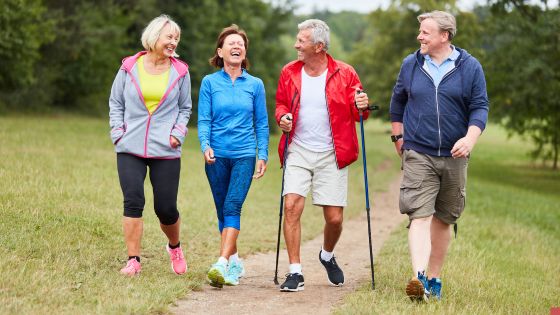As individuals age, maintaining an active lifestyle becomes increasingly important for physical, mental, and emotional health. Outdoor activities, in particular, offer significant benefits that can help elderly individuals improve their well-being. From boosting physical fitness to enhancing mental clarity, spending time outdoors provides a holistic approach to aging well.

This article explores the positive impact of outdoor activities on the elderly and offers insights into how these experiences promote an active and fulfilling life.
Physical Benefits
One of the most immediate advantages of outdoor activities is the improvement in physical health. Regular physical movement is essential for maintaining strength, flexibility, and balance—key factors in preventing falls and reducing the risk of injuries. Outdoor activities like walking, gardening, cycling, or swimming help elderly individuals stay active without the intensity of high-impact exercises. Engaging in these activities helps maintain muscle mass, enhances cardiovascular health, and reduces stiffness in joints, which are common concerns as the body ages.
Exposure to sunlight during outdoor activities also provides the added benefit of vitamin D, which is critical for bone health. As people age, the body’s ability to absorb and process vitamin D diminishes, making outdoor time essential for preventing conditions such as osteoporosis. A regular dose of sunlight not only strengthens bones but also improves immune function and promotes better sleep patterns, both of which are crucial for overall health in older adults.
Mental Health and Cognitive Benefits
The positive effects of outdoor activities extend beyond physical health, as spending time in nature is known to have a profound impact on mental well-being. The fresh air and calming environment can reduce stress, alleviate symptoms of anxiety, and combat feelings of depression—common mental health challenges faced by the elderly. Green spaces and natural surroundings have been shown to improve mood and boost emotional resilience, helping seniors feel more connected to their surroundings, so care homes (like the one found at oakdalecarehome.co.uk) create beautiful outdoor spaces and encourage their residents to explore them.
Outdoor activities also provide an opportunity for cognitive stimulation. Exploring new environments, whether it’s a forest trail, a local park, or a botanical garden, encourages seniors to stay mentally engaged. The variety of sights, sounds, and textures found in nature stimulates the brain and helps maintain cognitive function. Studies have demonstrated that time spent outdoors can help improve attention, memory, and problem-solving skills—all of which are important for preserving mental acuity as people age.
Social and Emotional Well-being
Another vital benefit of outdoor activities is the opportunity for social interaction. Loneliness and isolation are significant concerns for the elderly, often contributing to declining health and a reduced quality of life. Group activities such as walking clubs, gardening groups, or nature tours encourage social bonding and help seniors build supportive relationships with their peers. The shared experience of being outdoors fosters a sense of community, which can mitigate feelings of isolation and loneliness.
In addition, outdoor activities help elderly individuals feel more empowered and independent. Participating in physical and social events outside the home reinforces a sense of purpose, which is essential for emotional well-being. This sense of accomplishment can lead to higher self-esteem and a more positive outlook on life. Moreover, exploring new places and taking on manageable challenges in outdoor settings offers elderly people a renewed sense of adventure and discovery.
Encouraging Outdoor Participation
Promoting active living through outdoor activities requires creating accessible and inviting environments for the elderly. This includes providing safe, well-maintained walking paths, parks with seating areas, and outdoor spaces designed with accessibility in mind. Communities can also support seniors by organizing outdoor programs specifically tailored to different fitness levels, ensuring that everyone can participate regardless of physical limitations.
Families and caregivers play an important role in encouraging outdoor participation. By planning regular outdoor outings, providing transportation assistance, and joining in on the activities themselves, they can help elderly individuals experience the full range of benefits that outdoor living offers.
Conclusion
Outdoor activities are a powerful tool for improving the well-being of elderly individuals, offering a range of physical, mental, and emotional benefits. By promoting active living and encouraging seniors to spend more time outside, society can support their overall health, independence, and happiness. Whether through a walk in the park or a shared gardening project, outdoor activities offer a meaningful way for older adults to stay engaged with the world around them and lead fulfilling lives.
